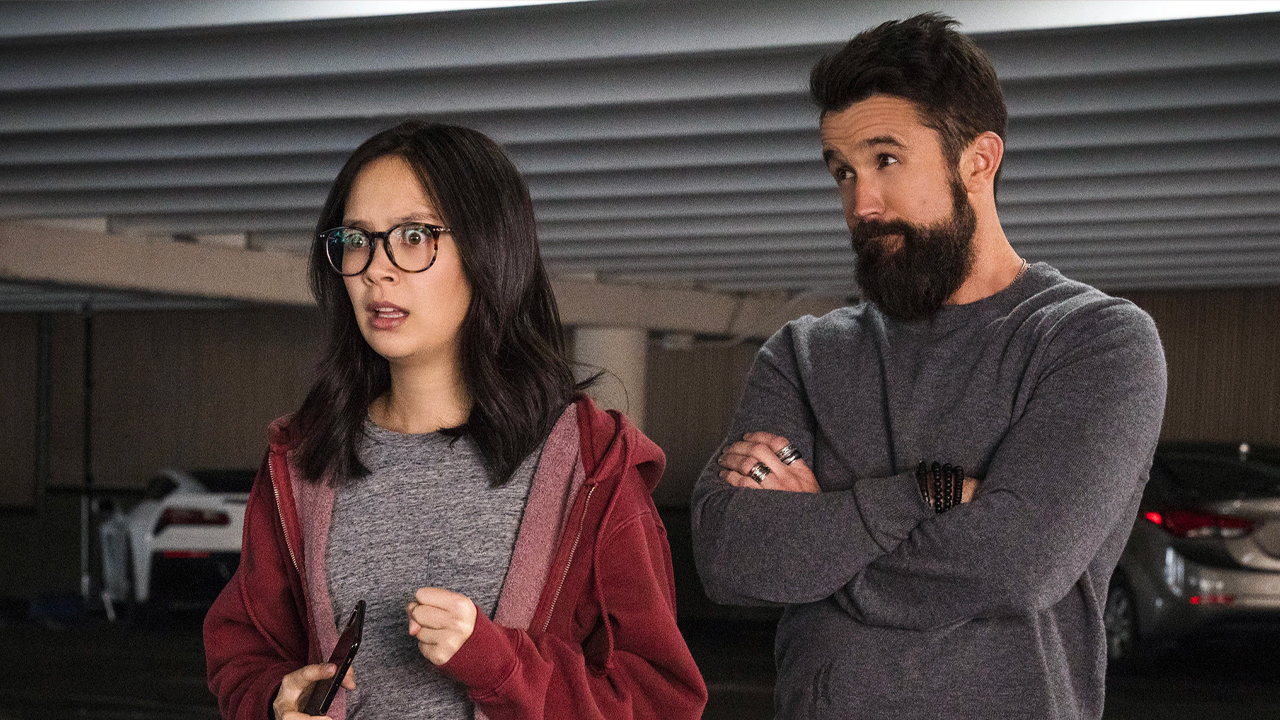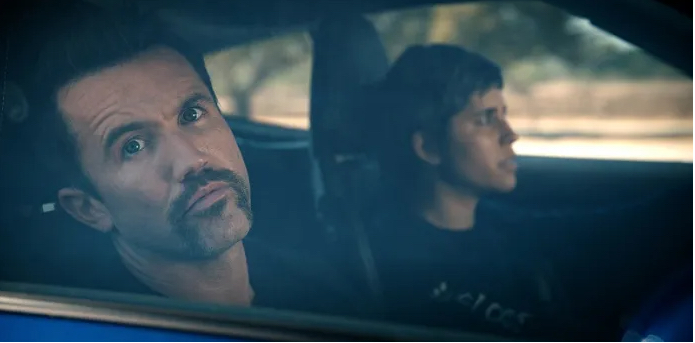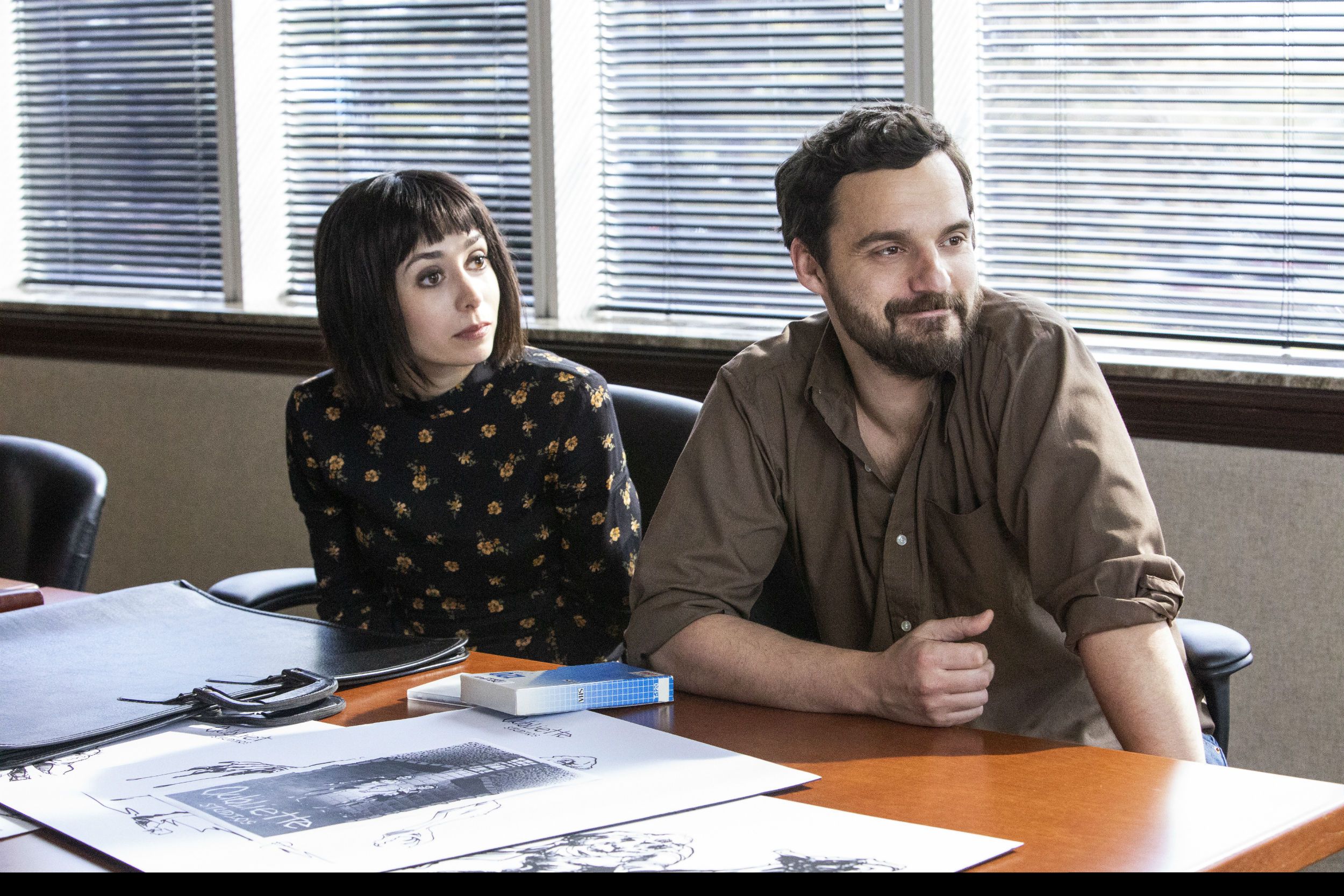Ted Lasso Can F**k Himself? Why ‘Mythic Quest’ is Really the Best Show on Apple TV Plus
All eyes are on Jason Sudeikis’ quirky feel-good hit as it premieres its second season Friday. But quietly, it's the ‘MQ’ creative team, led by ‘It’s Always Sunny's’ Rob McElhenney, who are doing some of the most innovative storytelling on television

The smarter way to stay on top of the streaming and OTT industry. Sign up below.
You are now subscribed
Your newsletter sign-up was successful
Maybe it’s because Mythic Quest: Raven’s Banquet came out just before the pandemic forced people to sit at home indefinitely with nothing to do but watch video. Maybe it got a little lost in the transition.
Or maybe it’s because the pilot episode of the workplace sitcom is the least impressive of the 20-episode series? For whatever reason, it's Ted Lasso and not Mythic Quest, that is the apple of Apple TV Plus’ eye.
Lasso, which bows its second season Friday, may be the platform's favorite child, but Mythic Quest is arguably the strongest comedy--and overall series--on Apple TV Plus.
Conceived by the team behind It’s Always Sunny in Philadelphia —Rob McElhenney, Charlie Day and Megan Ganz—Mythic Quest is a workplace comedy focused on the Los Angeles-based tech company that runs the eponymous online video game. Led by "MQ" creative director Ian Grimm (McElhenney), the show initially feels a bit derivative of The Office, with character archetypes like Grimm, mimicking the male egomania of our favorite Dunder Mifflin district regional manager, Michael Scott's (Steve Carrell).
But after the initial introduction of the MQ team via episode one (aptly titled “Pilot”), it’s hard to compare the show to any other. While poking fun at the gaming industry, the series accurately portrays game development, or at least seems to, and somehow manages to make each character—including game testers, assistants, engineers, human resources VPs, "monetization" specialists and a bloviated “head writer," among them—three-dimensional, and as appealing and hilarious as McElhenney’s often over-the-top Grimm.
The racially diverse cast made up of just as many women as men includes Academy Award-winner F. Murray Abraham (Homeland), Danny Pudi (Community), Imani Hakim (Everybody Hates Chris), Charlotte Nicdao (Thor: Ragnarok), David Hornsby (It’s Always Sunny in Philadelphia), Ashly Burch (Final Space), Elisha Hennig (The Sinner), and Jessie Ennis (Better Call Saul).
Season 1's nine episodes, along with two specials, addressed controversial subject matter like workplace sexism and white supremacy, and somehow made the serious topics hilarious.
The smarter way to stay on top of the streaming and OTT industry. Sign up below.
For example, when white supremacist players infiltrate the MQ game, the team agrees to immediately ban them. That is, until the Pudi's "head of monetization, asks, “Nazis make excellent villains. Have we considered embracing the Nazis, narratively speaking?”
There’s also a subversive thread to Mythic Quest’s woke virtue. For example, when McElhenney’s Ian is confronted by Burch’s Rachel, an out lesbian, challenging her white male boss on his privilege while seeking a promotion, he calls her out. Yes, he concedes, he has definitely benefited from privilege. And now, confined together in a car ride back to the office, now would be the perfect opportunity to make her pitch. But Rachel, while adept at identifying MQ’s many obvious flaws in diversity and inclusion, has not identified her specific career goals, or honed any kind of necessary credentials. “You want a seat at the table,” Ian tells her. “You first have to know what table that is.”

In a subsequent Season 2 episode, Ian, while discussing possible inappropriate language use with two female employees, demurs, declaring he’s the one that could end up getting cancelled.
It’s dialogue like this, that addresses the inner nuance of corporate America in the post (pre?) pandemic era, that make the show feel familiar, but in a way, much more provocative than The Office.
Yet despite receiving a somewhat rare 100% “fresh” rating for its second season from critics’ aggregation platform Rotten Tomatoes, the Television Academy recently gave the half-hour, single-camera comedy only two Emmy nominations—one for Anthony Hopkins’s voice narration, and another tech nod for sound editing. Compared to Ted Lasso’s 20 nods, it’s a major snub, especially since Quest is one of the only series on any streaming service pushing the structural boundaries of television.
Take for instance Season 1 and 2 departure story arcs that temporarily interjected entirely new characters, actors and settings.
Season 1’s fifth episode, “A Dark Quiet Death,” is set in the mid-to-late 1990s, with McElhenney confining himself to the directors chair, and none of the other regular cast members appearing. Jake Johnson (perhaps best known as New Girl’s Nick) plays Doc, an aspiring video game producer who falls for goth gaming visionary Bean (Made for Love’s Cristin Milioti). The pair launch a eponymously dark, successful seminal game company, only to be tragically undone—both maritally and in business—when Doc loses faith in Bean’s creative vision.
But Doc and Bean’s game—and their lesson about integrity and trust—lives on in subsequent episodes, referenced as a cautionary parable by Ian, whose shared office with creative foil and work wife, Poppy Lee, as it turns out, occupies the same physical space as their Dark Quiet Death forebears. The arc is also referenced in prior episodes, such as when a fan girl dresses up as “Roscoe,” a ridiculous character fomented as the fictional Dark Quiet Death game jumped the creative shark.

Season 2’s departure arc, “Backstory!,” features but one familiar charter, Murray Abraham’s bloviated sci-fi novelist turned Mythic Quest backstory overseer, C.W. But it’s the youthful, 1972 iteration of C.W. we see, played by Josh Brener, as a young Nebula-aspiring sci-fi novelists, seeking the lofty pedestal of Asimov and Bradbury, only to be humiliatingly confounded by his own creative limitations and professional rivalries.
Again, the viewer experiences the deft, loving hand of the MQ writers, delivering what seems like an ode—in both departure episodes—to the “warrior” as he/she faces the brutal and vastly perplexing challenges of the creative arena.
C.W. is redeemed not by his floundering quest to be something he’s not good at—but by his vision, of a narrative future for a brand new medium, in its formative stages, as he passes by a primordial Magnavox Odyssey game console in a store window, state of the art in 1972, playing the seminal game Pong.
Arguably, these two episodes are Mythic Quest’s best.
Last year, McElhenney told The Hollywood Reporter that the plan is to do at least one creative standalone episode each season.
“We’re definitely fans of TV, and we’re seeing people take real risks in storytelling,” McElhenney said. “There are no rules anymore. It used to be that you had to tell a story in a very specific way. And yet, we recognize the show is a fairly traditional workplace comedy, and that’s by design. [Mythic Quest] we thought was an opportunity to broaden that out a little bit and welcome a new audience in, just as a challenge, but we still want to stretch and do strange things. So, we had this idea of having something right in the middle of the season that was thematically tied to what was happening and also had lots of different elements to it that were Easter eggs that hopefully if somebody watches it the first time, they might pick up on the Roscoe character, the fact that this was the previous game studio offices and ultimately, in the end, you start to realize that it’s all thematically built into what the overarching narrative of the season is. Hopefully, we want this audience to watch multiple times and pick up on other things, because there are a lot of elements in there that are very carefully placed to create this overall ecosystem that we’re trying to build and will come back in the second season.”
Another notable episode that streamed between Season 1 and Season 2, called Quarantine, was entirely shot remotely with iPhones at the homes of cast members. The episode, which highlighted the challenges, both logistic and emotional, of the MQ staff amid the height of the pandemic, received acclaim as one of TV’s most creative pandemic-related installments.
Interestingly, McElhenney was approached by French gaming company, Ubisoft, in 2018 to make a series about game development, but initially wasn’t interested.
“That’s only because everything I’d seen in the past had just painted the industry in such a negative light, and it just felt like it was always the butt of the joke. It felt hacky; it felt like I’d seen it a million times,” McElhenney added in THR. “They encouraged me to just come out to Montreal and check out their studio to meet some of the people who actually make these games. I figured, it’s a free trip to Montreal, might as well take it. Within a few minutes of walking into their studio, I realized we had something.”
Mythic Quest is definitely something. But could it be the next-gen version of HBO’s The Wire, a standout show that goes under recognized by mass audiences and the people who nominate shows for awards? Let’s hope MQ doesn’t end up as a departure episode itself, living and dying a brilliant dark, quiet existence of its own.
